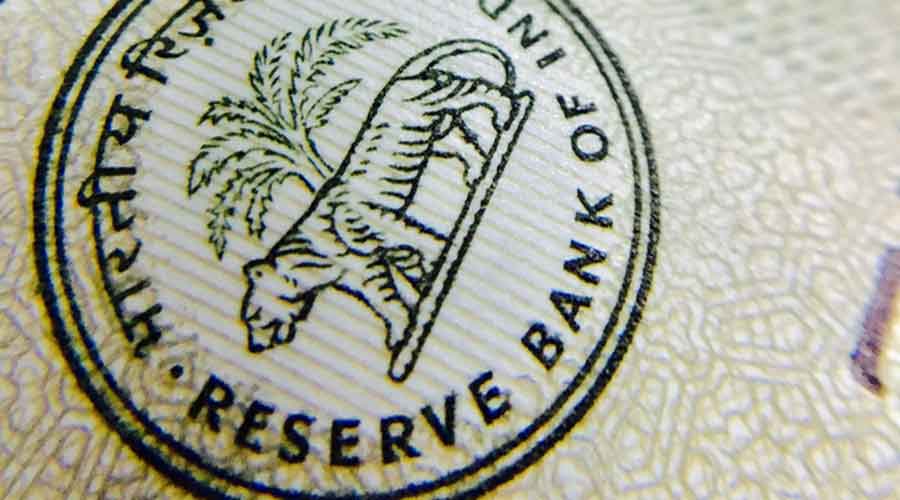The Reserve Bank of India (RBI) on Friday kept interest rates unchanged at a record low as it chose to support economic revival despite raising its forecast for inflation.
The six-member Monetary Policy Committee (MPC) voted unanimously to retain the repurchase (repo) rate — the rate at which the central bank lends short-term funds to banks — at 4 per cent, but was split on continuing with its accommodative stance.
“The MPC decided on a 5 to 1 majority to continue with the accommodative stance as long as necessary to revive and sustain growth on a durable basis,” RBI governor Shaktikanta Das said. This was a departure from the past when they were unanimous on the need to support growth. An accommodative stance means a rate hike is unlikely.
The RBI retained its GDP growth forecast for the current fiscal at 9.5 per cent, but revised its retail inflation forecast to 5.7 per cent, up from the earlier 5.1 per cent. The projected inflation being closer to the upper tolerance band implies price pressures are not likely to ease anytime soon.
The central bank scaled down the growth projections for the next few quarters but raised the forecast for April-June to 21.4 per cent.
This, analysts said, may reflect its concerns on the pace of consumption demand revival.
Growth in Q1 of next fiscal was forecast at 17.2 per cent.
The committee said current inflation — which is riding above the 6 per cent threshold — was a transitory phenomenon and driven by “supply side factors”. The committee also noted that high frequency data showed that consumption and investment were regaining traction.
Das said pricing pressures were “exogenous and temporary”. Any move to curb inflation now would “kill the nascent and hesitant recovery that is trying to secure a foothold in extremely difficult conditions”.
The RBI governor also said: “The outlook for aggregate demand is improving, but the underlying conditions are still weak.”
“Aggregate supply is also lagging below pre-pandemic levels,” he added.
The upside cues for growth were improving capacity utilisation, rising steel consumption, higher capital goods imports, congenial monetary and financial conditions and the Centre’s economic packages.
Downside risks are global commodity prices, financial market volatility and a new wave of infections.
Debt recast
The RBI relaxed by six months the deadline to meet four operational parameters under the one-time debt restructuring scheme announced in August 2020. The parameters include total debt-to-Ebitda ratio, current ratio, debt service coverage ratio and average debt service coverage ratio. The deadline has been extended to October 1, 2022 from March 31, 2022.
“Recognising the adverse impact of the second wave of Covid-19, it has been decided to defer the target date for meeting the specified thresholds in respect of the above four parameters to October 1, 2022,” Das said.
Industry upbeat
Corporate India on Friday said the status quo on key interest rates and an accommodative monetary policy will boost the confidence of businesses and consumers.
PHDCCI president Sanjay Aggarwal said, “We urge the banking sector to transmit all the cuts in the repo rate during the last financial year to trade, industry and consumers.”
Uday Shankar, president, Ficci said: “The Central Bank has thoughtfully navigated the monetary policy through the pandemic... on the economic front despite the uptick, Ficci believes that it is important that a stimulus is provided by the government to give a thrust to consumption.”
Assocham said the RBI’s “expectations that inflation should moderate from the third quarter of the current fiscal year are realistic as various supply-side issues would be resolved by then”.
Stocks fall
The Sensex nursed losses for the first time this week on Friday with the index closing down 215.12 points, or 0.39 per cent, at 54277.72. The NSE Nifty fell 56.40 points, or 0.35 per cent, to 16238.20. RIL was the top laggard among the Sensex pack, shedding 2.07 per cent.











